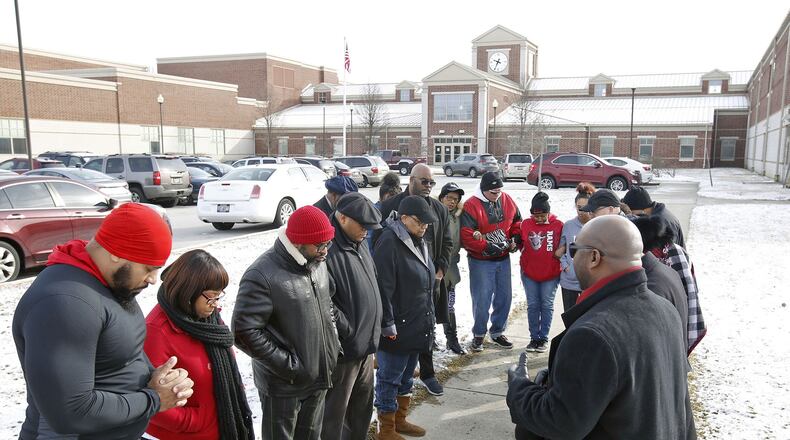RELATED: Ohio seeks to reinvent the high school experience
The paragraph that led to most of the debate deals with the second issue of academic work.
The bill says no public school “shall prohibit a student from engaging in religious expression in the completion of homework, artwork, or other written or oral assignments. Assignment grades and scores shall be calculated using ordinary academic standards of substance and relevance, including any legitimate pedagogical concerns, and shall not penalize or reward a student based on the religious content of a student’s work.”
Earlier this year, the ACLU of Ohio testified that the bill would prevent a science teacher from marking a Creationist-believing student’s answer factually wrong if they said the earth was less than 10,000 years old.
RELATED: Local man to serve as Ohio School Boards president
State Rep. Tim Ginter, R-Salem, an ordained minister who sponsored the bill, did not return calls seeking comment this week. Ginter told Cleveland.com the ACLU’s argument was wrong, saying that under HB 164, the student in their example should get a lesser grade, because regardless of their beliefs, their work must accurately reflect what is taught.
Then a week after the bill passed – by a 61-31 vote – the Ohio Council for the Social Studies issued a position statement arguing that the bill “would prohibit K-12 teachers from penalizing students for giving incorrect answers on tests or other schoolwork, if those facts conflict with their religious beliefs.”
Citizens for Community Values, a conservative Christian lobbying group, responded by calling the claims about inaccurate answers “a completely baseless lie,” adding that identical laws have been passed in 10 other states with no incidents over incorrect work.
RELATED: Test data shows preschool having positive impact
Asked when the Ohio Senate would take up the bill, Senate Education Committee Chair Peggy Lehner, R-Kettering, said she had not heard of the bill until a series of recent phone calls.
“I’ve been wrapped up in a lot of other bills that seem far more important at the moment, so I haven’t done my homework yet to try to figure out what this is,” Lehner said this week.
The state legislature is currently weighing a possible overhaul of state education funding, report card accountability for schools and private school voucher rules, among other bills.
After discussing the Religious Liberties bill, Lehner said if the Senate does advance it, she would “certainly seek to have some clarification” on the key sentence regarding grading.
The first part of the sentence says grades should depend on “ordinary academic standards of substance and relevance, including any legitimate pedagogical concerns.” That’s in line with Ginter’s statement that the student would get a low grade for not accurately reflecting what was taught. Lehner agreed with Ginter on that position.
RELATED: DPS spending to increase 14 percent this school year
But the second part of the sentence says, “and shall not penalize or reward a student based on the religious content of a student’s work,” creating a possible conflict.
“I think there’s a fine line,” Lehner said. “If a student was writing a paper on the beginning of world, and said (their) personal belief is in creation, but added there’s also the theory of evolution, and they explained it properly, I would think a kid would get credit.”
Another section of the bill would remove a school board’s ability to limit religious expression to lunch periods or “other non-instructional time periods.” State Rep. Catherine Ingram, D-Cincinnati, said she worried that the bill could allow students to leave during class periods when they should be learning, citing religious reasons.
Ginter said on the House floor that the key language of the bill is that students may engage in religious expression “in the same manner and to the same extent a student is permitted to engage in secular activities,” putting religious expression on equal footing with school clubs and activities that already exist.
SURVEY: Dayton residents split on quality of life in city
Ginter said on the House floor that the bill’s language protecting the wearing of religion-related clothing would be subject to existing school oversight of offensive or disruptive attire.
Some state representatives said many of the bill’s protections are already included in state and federal law.
According to the nonpartisan Legislative Service Commission, the bill would also requires public schools to give students who wish to meet for the purpose of religious expression the same access to school facilities given to secular student groups.
About the Author

